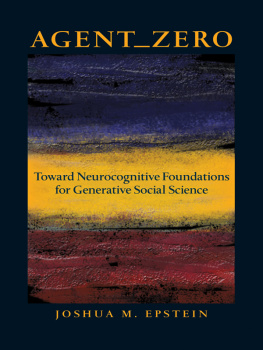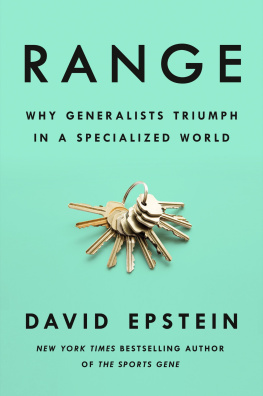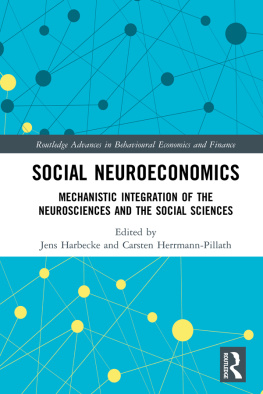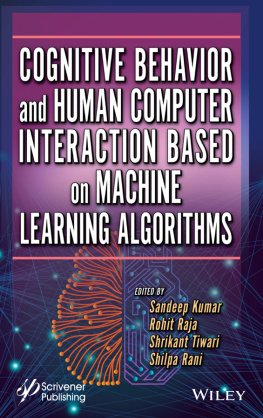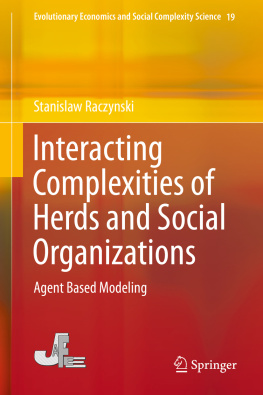
Agent_Zero
Princeton Studies in Complexity
SERIES EDITORS
Simon A. Levin (Princeton University)
Steven H. Strogatz (Cornell University)
Lars-Erik Cederman, Emergent Actors in World Politics:
How States and Nations Develop and Dissolve
Robert Axelrod, The Complexity of Cooperation:
Agent-Based Models of Competition and Collaboration
Peter S. Albin, Barriers and Bounds to Rationality:
Essays on Economic Complexity and Dynamics in Interactive Systems. Edited and with an introduction by Duncan K. Foley
Duncan J. Watts, Small Worlds:
The Dynamics of Networks between Order and Randomness
Scott Camazine, Jean-Louis Deneubourg, Nigel R. Franks, James Sneyd, Guy Theraulaz, and Eric Bonabeau, Self-Organization in Biological Systems
Peter Turchin, Historical Dynamics: Why States Rise and Fall
Andreas Wagner, Robustness and Evolvability in Living Systems
Mark Newman, Albert-Laszlo Barabasi, and Duncan Watts, eds., The Structure and Dynamics of Networks
J. Stephen Lansing, Perfect Order: Recognizing Complexity in Bali
Joshua M. Epstein, Generative Social Science:
Studies in Agent-Based Computational Modeling
John H. Miller and Scott E. Page, Complex Adaptive Systems:
An Introduction to Computational Models of Social Life
Michael Laver and Ernest Sergenti, Party Competition: An Agent-Based Model
Joshua M. Epstein, Agent_Zero:
Toward Neurocognitive Foundations for Generative Social Science
Agent_Zero
Toward Neurocognitive Foundations for Generative Social Science
Joshua M. Epstein
Princeton University Press
Princeton and Oxford
Copyright 2013 by Princeton University Press
Published by Princeton University Press, 41 William Street, Princeton, New Jersey 08540
In the United Kingdom: Princeton University Press, 6 Oxford Street, Woodstock, Oxfordshire OX20 1TW
press.princeton.edu
All Rights Reserved
Library of Congress Cataloging-in-Publication Data
Epstein, Joshua M., 1951
Agent zero : toward neurocognitive foundations for generative social science / Joshua M. Epstein.
pages cm. (Princeton studies in complexity)
Summary: The Final Volume of the Groundbreaking Trilogy on Agent-Based Modeling In this pioneering synthesis, Joshua Epstein introduces a new theoretical entity: Agent Zero. This software individual, or agent, is endowed with distinct emotional/affective, cognitive/deliberative, and social modules. Grounded in contemporary neuroscience, these internal components interact to generate observed, often far-from-rational, individual behavior. When multiple agents of this new type move and interact spatially, they collectively generate an astonishing range of dynamics spanning the fields of social conflict, psychology, public health, law, network science, and economics. Epstein weaves a computational tapestry with threads from Plato, Hume, Darwin, Pavlov, Smith, Tolstoy, Marx, James, and Dostoevsky, among others. This transformative synthesis of social philosophy, cognitive neuroscience, and agent-based modeling will fascinate scholars and students of every stripe. Epsteins computer programs are provided in the book or on its Princeton University Press website, along with movies of his computational parables. Agent Zero is a signal departure in what it includes (e.g., a new synthesis of neurally grounded internal modules), what it eschews (e.g., standard behavioral imitation), the phenomena it generates (from genocide to financial panic), and the modeling arsenal it offers the scientific community. For generative social science, Agent Zero presents a groundbreaking vision and the tools to realize itProvided by publisher.
Includes bibliographical references and index.
ISBN 978-0-691-15888-4 (hardback)
1. Social sciencesComputer simulation. 2. Social sciencesMathematical models. I. Title.
H61.3.E6697 2013
300.1dc23 2013018009
British Library Cataloging-in-Publication Data is available
The research for this book was funded by a 2008 NIH Directors Pioneer Award
This book has been composed in Minion Pro and Fairfield
Printed on acid-free paper.
Printed in the United States of America
1 3 5 7 9 10 8 6 4 2
For Matilda,
My lark at break of day arising
Contents
Foreword
I SEE THIS BOOK as the third in a trilogy on generative social science.
VOLUME I
The first volume of the trilogy was Growing Artificial Societies: Social Science from the Bottom Up (MIT Press/Brookings Press), with coauthor Robert Axtell. Published in 1996, this introduced the Sugarscape agent-based model, and the notion of a generative explanation of social phenomena. Sugarscape was a single sweeping exploratory artificial society, with glimmerings of a mature generative epistemology.
VOLUME II
For the subsequent decade, with diverse colleagues, I applied agent-based modeling to a broad spectrum of fieldseconomics, archaeology, conflict, epidemiology, spatial games, and the dynamics of normsand thought more deeply about the philosophy of agent-based social science. The results are collected in the second volume of the trilogy: Generative Social Science: Studies in Agent-Based Computational Modeling, published in 2006 by Princeton University Press. Relative to Growing Artificial Societies, Generative Social Science presented a collection of more tightly focused and specifically explanatory exercises, and a far more extended and mature generative epistemology.
VOLUME III
Generative Social Science ended with a challenge: Grow Raskolnikov! By this, I meant agents with more fully developedand so conflictedinner lives.response. It introduces a new theoretical entity, Agent_Zero, whose observable behavior is itself generated by the interaction, indeed conflict, of affective, deliberative, and social components. Passion, reason, and social forces, in other words, are all at play in Agent_Zeros observable behaviors, which span a wide array of fields, including economics, health, conflict, social psychology, and endogenous network dynamics. Needless to say, the relationship between passion and reason within the individual, and the relation of the individual to society, are among the more enduring questions in philosophy. And while I do not claim to resolve them, I do claim to treat them in a new way. A significant volume of contemporary cognitive neuroscience is employed in constructing Agent_Zero, whom I offer as a new, neurocognitively grounded, foundation for generative social sciencehence the subtitle of this book. However, as is repeated numerous times, I use only selected neuroscience in developing this particular agent model. I do not purport to encompassmuch less to advanceany area of neuroscience itself. Indeed, through the good offices of a number of very fine neuroscientists, I may have avoided insulting their fascinating and fast-moving discipline.
Indeed, the name Raskolnikov is from the Russian, rasklnik, meaning, roughly, schismatic.
Preface
EMOTIONAL, COGNITIVE, AND SOCIAL FACTORS shape the behavior of individuals in groups and hence shape the emergence of important social dynamics, from genocide to financial panic. I wish to generate such social dynamics from the bottom up, in social networks of neurocognitively plausible individuals. To this end, I introduce a new theoretical entity, Agent_Zero, endowed with interacting emotional/affective, cognitive/deliberative, and social modules.
Next page
